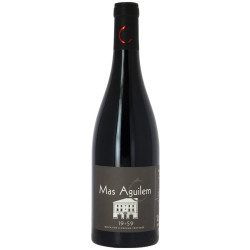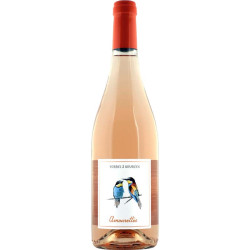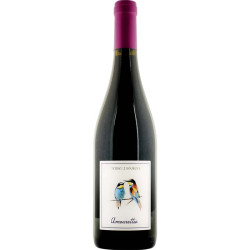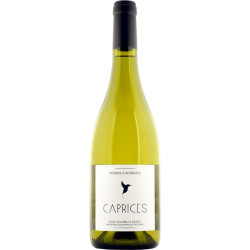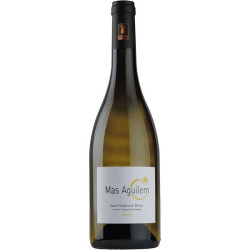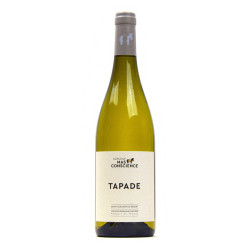Filtrer
IGP Saint-Guilhem-le-Désert: Everything You Need to Know About the Wines of This Appellation
History of the IGP Saint-Guilhem-le-Désert Appellation
The IGP Saint-Guilhem-le-Désert is a relatively recent appellation, recognized for the diversity and quality of its wines in the Languedocregion. Located in the heart of Hérault, this appellation is named after the famous village of Saint-Guilhem-le-Désert, listed among the most beautiful villages in France and recognized as a UNESCO World Heritage Site. The vineyard benefits from the Languedoc's winemaking heritage, a region where viticulture dates back to antiquity.
Climate and Terroir of the IGP Saint-Guilhem-le-Désert Appellation
Climate: Typically Mediterranean, with hot, dry summers and mild winters, the climate of IGP Saint-Guilhem-le-Désert also benefits from maritime breezes. These winds from the Mediterranean temper the intense summer heat and allow for slow and balanced grape ripening.
Soils: The terroir is varied, composed mainly of clay-limestone, schist, and sandstone soils. This geological diversity allows winemakers to grow a wide range of grape varieties, each expressing itself differently depending on the parcel.
Grape Varieties of IGP Saint-Guilhem-le-Désert
The IGP Saint-Guilhem-le-Désert permits a wide range of grape varieties, allowing for great diversity in wine styles. For red and rosé wines, the dominant varieties are Syrah, Grenache, Cinsault, Carignan, and Mourvèdre. These typically Mediterranean grapes are known for their ability to produce wines rich in black fruit aromas, spices, and garrigue (Mediterranean scrubland). The white wines of the appellation are mainly made from Chardonnay, Sauvignon Blanc, Vermentino, and Grenache Blanc. These varieties produce fresh, fruity, and sometimes mineral white wines with lovely acidity.
Style of IGP Saint-Guilhem-le-Désert Wines
Red wine: Featuring an intense purple color with violet reflections, these red wines exude complex aromas of black fruits such as blackberry and blackcurrant, accompanied by spicy notes of pepper and licorice. On the palate, they are full-bodied and well-structured, with soft tannins and a long finish. Depending on the estate and vintage, these red wines have good aging potential, with some bottles improving over 5 to 10 years.
Rosé wine: Pale pink with salmon reflections. Delicate and subtle, the nose offers aromas of strawberry, raspberry, and citrus (grapefruit). IGP Saint-Guilhem-le-Désert rosé wines are fresh and light, with a lively acidity that adds brightness.
White wine: The white wines of IGP Saint-Guilhem-le-Désert showcase a pale yellow color with golden highlights. The nose is expressive, with notes of white-fleshed fruits, citrus, and sometimes a floral touch. On the palate, these wines are balanced, offering a nice roundness and a slightly mineral finish.
Best Food and Wine Pairings with IGP Saint-Guilhem-le-Désert Wine
Here are some recipe ideas for the best food and wine pairings with a bottle of red, white, or rosé wine from a domain or château in IGP Saint-Guilhem-le-Désert:
White wine: Mussels marinière, grilled sardines, calamari fritters
Rosé wine: Tuna-stuffed turnovers, Caesar salad
Red wine: Bull rump steak, moussaka, spaghetti Bolognese

